The Silent Collapse: How Today’s World Normalises the Unacceptable
The Brightest Era, the Blindest Hearts
We live in an era of unprecedented access, innovation, and connection. Satellites orbit the Earth, delivering internet to villages. Artificial intelligence is solving problems that humans couldn’t have dreamed of a decade ago. Medicine, communication, and education are advancing at breakneck speed. Humanity appears to be evolving. Yet beneath this golden exterior, a subtle erosion is taking place, less visible, more dangerous. The collapse of integrity. The normalisation of deceit. The sacrifice of human dignity at the altar of convenience. The very foundation of social life, built on trust, responsibility, and compassion, is weakening. While headlines praise growth, the human soul is quietly starving. This essay examines four significant domains where this invisible breakdown is most pronounced: the rise of strategic dishonesty, the erosion of justice systems, the transactional nature of modern relationships, and the morality-blind progression of the global economy. We’ll also draw from Islamic ethical wisdom and global examples to demonstrate that reclaiming foundational values is not just a religious sentiment, but a social necessity.
Strategic Dishonesty: When Lies Become Tools
Lies today are no longer just moral failures; they are often deliberate strategies. From political campaigns to advertising, from influencers to corporate boardrooms, manipulation is being disguised as “messaging” and misinformation as “public relations.”
Consider the example of deepfake technology, where realistic fake videos are used to impersonate public figures, often for political purposes. What began as a digital novelty has now become a tool of deception that can sway elections or destroy reputations. In 2023, a deepfake of a presidential candidate in Argentina circulated online just 48 hours before polling day leading to a 3% swing in voter behaviour. Social media fuels this fire. Platforms reward outrage, not accuracy. Posts that manipulate emotions often by distorting the truth tend to go viral far faster than balanced, fact-checked content. A 2021 MIT study found that false news spreads six times faster than the truth on Twitter (now X).
In this environment, truth is no longer sacred; it is optional. But when truth becomes negotiable, trust dies. And when trust dies, democracy, justice, and social cohesion soon follow. Islamic ethical tradition values truth as a fundamental virtue, not simply a social courtesy. The Qur'an reminds us:
“And do not mix the truth with falsehood or conceal the truth while you know [it].” (Qur’an 2:42)
This command isn't only spiritual, it’s a call to clarity and responsibility, especially for those in power, media, and education.
When Justice Is Delayed, It Dies
Every society claims to honour justice. Yet, in practice, justice is increasingly reserved for those who can afford it, and delayed for those who most desperately need it. In many democratic countries, the justice system is facing a massive credibility crisis. For example, in India, as of early 2024, over 5 crore (50 million) legal cases remain pending in various courts. It can take 10–15 years for a criminal case to be resolved, particularly if the victim is poor or politically powerless.
Meanwhile, in the United States, statistics show that African Americans are six times more likely to be incarcerated than white Americans. Bail systems often ensure that the poor remain imprisoned for months, sometimes years, before trial, while the wealthy walk free within hours.
In these scenarios, justice becomes a privilege rather than a right. It becomes something you buy, not something you're owed. Islamic legal philosophy, by contrast, insists that justice be fast, impartial, and universal. The Prophet Muhammad ﷺ said:
"The nations before you were destroyed because they used to apply the law to the weak but exempt the strong." (Bukhari 6788)
In early Islamic governance, even the Caliph like Umar ibn al-Khattab (RA) could be questioned in public courts without immunity. That example wasn’t theoretical; it was a real-time model of accountability. Modern societies must reawaken this principle not merely to punish wrongdoing but to protect human dignity. Court systems must be reformed, legal aid strengthened, and transparency institutionalised. Without this, the moral fabric continues to tear, thread by thread.
Relationships Without Roots
Never before in human history have people been more connected and felt more alone. Modern technology has revolutionised the way relationships are formed and maintained. Friendships are now measured in followers. Love is swiped through like a catalogue. Family conversations are replaced by emojis and disappearing texts. While the quantity of interaction has skyrocketed, the quality has plummeted.
According to a Harvard Study of Adult Development, one of the longest studies on human happiness, deep, meaningful relationships are the single most significant factor in well-being, even more than wealth or fame. Yet, in 2021, over 60% of young adults in the U.S. reported chronic loneliness despite being the most digitally connected generation. The commodification of relationships is also visible in how elder care is treated. In countries like Japan and South Korea, the rise of solitary deaths (“Kodokushi”) among the elderly has become a national concern. In India, NGOs like HelpAge report that elder neglect and emotional abuse have increased by over 30% in just a decade. From an Islamic ethical lens, this isn’t just a social issue; it’s a moral failure. The Prophet ﷺ said:
“He is not one of us who does not show mercy to our young and respect to our elders.” (Tirmidhi 1921)
Relationships in Islam are built on trust, patience, and responsibility, not speed or convenience. In an era when ghosting someone is easier than resolving conflict, the call to nurture genuine relationships has become a radical act.
The Morality-Blind Economy: Progress Without a Compass
Perhaps the most alarming space where values are vanishing is in the global economy. Progress is now measured by GDP, profits, and market expansion while the impact on human lives, dignity, and the planet is often ignored. Fast fashion, for example, offers cheap clothing at a rapid pace. But behind that low price is a hidden world of exploitation. In 2013, the Rana Plaza factory collapse in Bangladesh killed over 1,100 garment workers, mostly women who were producing clothes for global brands under inhumane conditions. Investigations revealed that workers were earning as little as $2 a day, often confined to buildings with inadequate safety measures. Technology isn't immune either. In 2021, a whistleblower at Facebook revealed internal research showing that Instagram harmed teenage mental health, especially among girls. Instead of acting, the company prioritised profits, even as self-harm reports grew.
The economy, when stripped of conscience, begins to treat people not as humans, but as data, labour, and consumers. In such a framework, addiction becomes “user engagement,” layoffs become “strategic downsizing,” and pollution becomes a “cost of doing business.”
This is where the Islamic perspective on economics provides a striking contrast. Islam never opposed wealth; it opposed the unethical accumulation of wealth. The Qur’an repeatedly denounces hoarding, exploitation, and cheating in business: “Woe to those who give less [than due], who, when they take a measure from people, take in full but when they give by measure or weight to them, they cause loss.” (Qur’an 83: 1 - 3). The Prophet Muhammad ﷺ was himself a merchant known for honesty and fairness. He famously said: “The truthful and trustworthy merchant will be with the Prophets, the truthful, and the martyrs.” (Tirmidhi 1209). Ethical business is not charity, it’s justice. It’s a responsibility. It’s sustainability. It’s knowing that every transaction is not just economic, but also moral. In today’s world, this means businesses must move beyond "CSR reports" and actually practice dignity for employees, consumers, and communities.
The Global Cost of Losing Our Way
This moral erosion is not abstract; it has tangible consequences in the real world. When dishonesty becomes normal, the political system crumbles. When justice is delayed, people turn to extremism. When relationships are hollow, mental illness rises. When economies are blind, inequality becomes explosive. Consider the growing mental health crisis globally. According to the World Health Organisation, depression is now the leading cause of disability worldwide. Much of this is rooted in the breakdown of belonging, trust, and human connection. Or take the rise of misinformation-fuelled violence, such as the genocide of the Rohingya Muslims in Myanmar, where false posts on Facebook fuelled hatred, displacement, and mass killings. The UN called it a “textbook case of ethnic cleansing.” This was not merely a political failure; it was a moral collapse enabled by digital irresponsibility.
Even climate change is more than a scientific issue; it’s an ethical one. Greed-driven policies, blind industrialisation, and neglect of environmental duty have brought the Earth to the brink. In Islam, the Earth is a trust (amanah), not a commodity:
“And do not commit abuse on the earth, spreading corruption.” (Qur’an 2:60)
Rebuilding What Was Lost: The Path Forward
The solution is not in nostalgia or utopia. We don’t need to rewind the world, we need to re-anchor it. Here’s how individuals and societies can begin reclaiming the essential foundations that hold us together:
- Reprioritise Integrity in Education
Schools should not just teach coding and finance; they must actively build character. Real ethics education, emotional intelligence, and community service should be part of every curriculum. A 2022 UNESCO study found that students who learn empathy and moral reasoning perform better both academically and socially.
- Reward Honesty, Not Just Performance
In workplaces and media, truth-telling and humility must be celebrated, not just charisma or speed. Organisations should track transparency as a performance metric, not just output.
- Reclaim the Family and Community
Faith traditions, family units, and community gatherings should be defended and revived not as old customs, but as lifelines for mental and moral health. Regular family meals, community volunteering, and intergenerational mentorship programs are shown to reduce anxiety and increase social trust.
- Build Accountable Institutions
Justice systems, governments, and corporations must be reformed with enforceable ethical codes of conduct. Whistleblower protections, public audits, and equitable access to legal aid are key elements. Islamic governance emphasised this centuries ago: when even Caliphs could be corrected in public, power was rightly humbled.
- Anchor Public Life in Conscience
Religion, when practised with humility and sincerity, isn’t backwards, it is transformative. It reminds societies that there is something greater than profit, stronger than policy, and deeper than trending hashtags.
As the Qur’an says:
“Indeed, Allah commands justice, excellence, and giving to relatives, and forbids immorality, bad conduct, and oppression. He admonishes you so that you may take heed.” (Qur’an 16:90)
Conclusion: A Future Worth Fighting
We live in a time where everything is moving fast except our capacity to reflect. Every technological revolution outpaces the ethical conversation surrounding it. Every economic victory has a moral cost. We are winning by numbers and losing by meaning. Yet all is not lost. The very fact that people are asking questions, seeking better, and challenging the current norms means something sacred still lives in us. A conscience. A thirst for justice. A desire to be whole. The journey ahead requires courage not of the sword, but of the soul. It demands that we speak the truth when it’s unpopular. That we do the right thing when no one is watching. That we hold the line when it’s easier to cross it.
In the words of Prophet Muhammad ﷺ:
“A time will come when holding onto your faith will be like holding onto burning coal.” (Tirmidhi 2260). That time may well be now. But those who hold on and walk with light in a world of shadows will not only survive. They will lead.
About the author
Sarif Aktar is a student of Political Science at Gauhati University and a postgraduate scholar in the Study of Religions at Darul Huda Islamic University, Kerala.
References
- Armstrong, K. (2011). Twelve Steps to a Compassionate Life. Anchor Books.
- Bauman, Z. (2000). Liquid Modernity. Polity Press.
- Haidt, J. (2012). The Righteous Mind: Why Good People Are Divided by Politics and Religion. Vintage Books.
- Macintyre, A. (1981). After Virtue: A Study in Moral Theory. University of Notre Dame Press.
- Oxfam. (2020). Time to care: Unpaid and underpaid work and the global inequality crisis. https://www.oxfam.org/en/research/time-care
- Pew Research Centre. (2020). The Future of Truth and Misinformation Online. https://www.pewresearch.org
- Qur’an. Surah Al-Mutaffifin (83:1–3); Surah An-Nahl (16:90); Surah Al-Baqarah (2:60).
- Ramadan, T. (2009). Radical Reform: Islamic Ethics and Liberation. Oxford University Press.
- Rangan, K., Chase, L., & Karim, S. (2015). The truth about CSR. Harvard Business Review. https://hbr.org/2015/01/the-truth-about-csr
- Suhail, I. (2015). Islamic business ethics: A conceptual analysis. International Journal of Islamic Thought, 8(1), 27–34.
- Tirmidhi. (n.d.). Hadith 1209; Hadith 2260.
- UNESCO. (2022). Global Education Monitoring Report – Ethics and Values in Education. https://www.unesco.org/reports/gem-report
- World Health Organization. (2021). Depression and other common mental disorders: Global health estimates. https://www.who.int/publications/i/item/9789241565639
- Yusuf al-Qaradawi. (1995). The Lawful and the Prohibited in Islam. American Trust Publications.
Disclaimer
The views expressed in this article are the author’s own and do not necessarily mirror Islamonweb’s editorial stance.

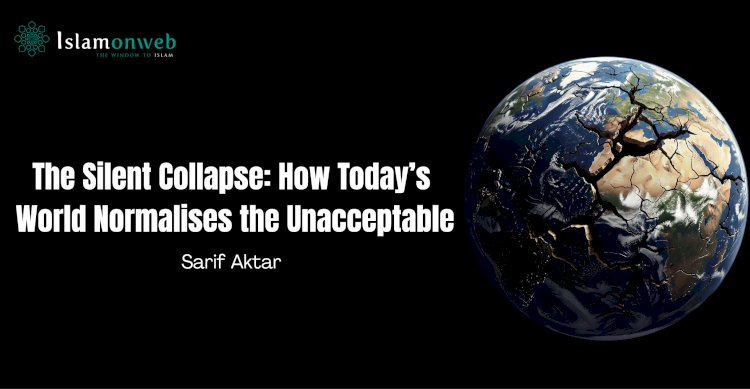


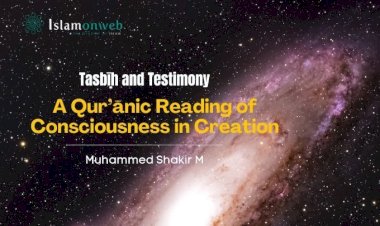
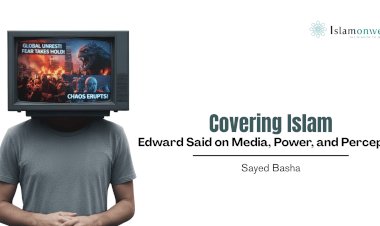
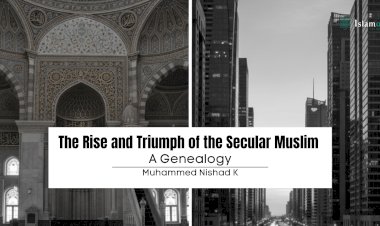
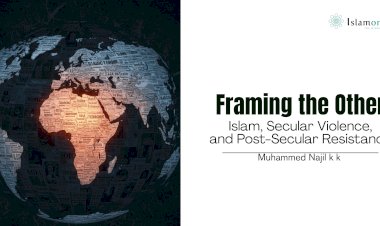
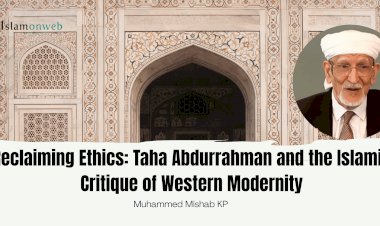
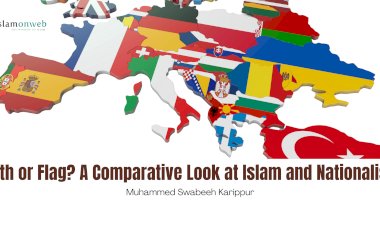














Leave A Comment